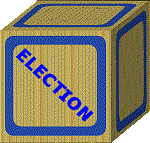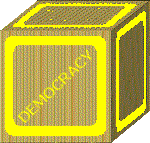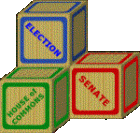As public confidence declines representation becomes bastardized (lower in condition or worth).
Voter turnout has declined from 79% of registered voters in 1958/1962 to 61% in 2011 with only 25% of youth(under25) casting a ballot.
Couple the 61% voter turnout with the 40% of turnout required to form a majority government means that only 24% of the population at most is represented by the political party in control of the administration of government. Is this a true mandate? Do 24% of the people actually have the authority to enact their legislation over the other 76%?
In Canada, yes they do! That is the law. Is it right? No!
Is it democratically correct? That is the debate.
Regardless of the voting method used to elect the government, be it FPTP, STV, PR or any other, without voter confidence in who is elected, true representation is limited at best. Unless those in government represent the majority of the electorate, can it be called democracy? Has the government have legitimacy?
Parliamentary Reform and the House of Commons
there is a broader concern about an apparent long-term decline in public confidence in politicians and political institutions. This trend was most recently documented in a report from the Minister for Democratic Reform, released on 10 September 2007. Based on extensive public consultations, the report identifies mistrust of members of Parliament (MPs) and frustration with the operation of the House of Commons as widespread attitudes. Perhaps reflecting this trend, voter participation in federal elections has declined from the levels of 75% to 80% typical of the 1950s and 1960s, to 61.5% in the 2004 election, for example, and 64.7% in 2006. Moreover, political engagement by young Canadians has fallen to extremely low levels from a traditional 50% voter participation rate to around 25% in recent elections. These figures have led to concern about an impending legitimacy crisis relating to Parliament and politics.
Canada needs to regain trust in government. People need to trust their representatives. Our representatives, Members of Parliament and Members of Legislative Assemblies, need to be accountable to those whom they represent.
Canada needs Make Your Member of Parliament Accountable, MYMPA.





